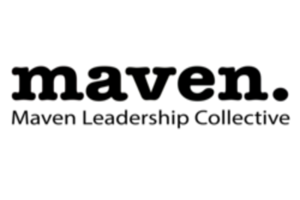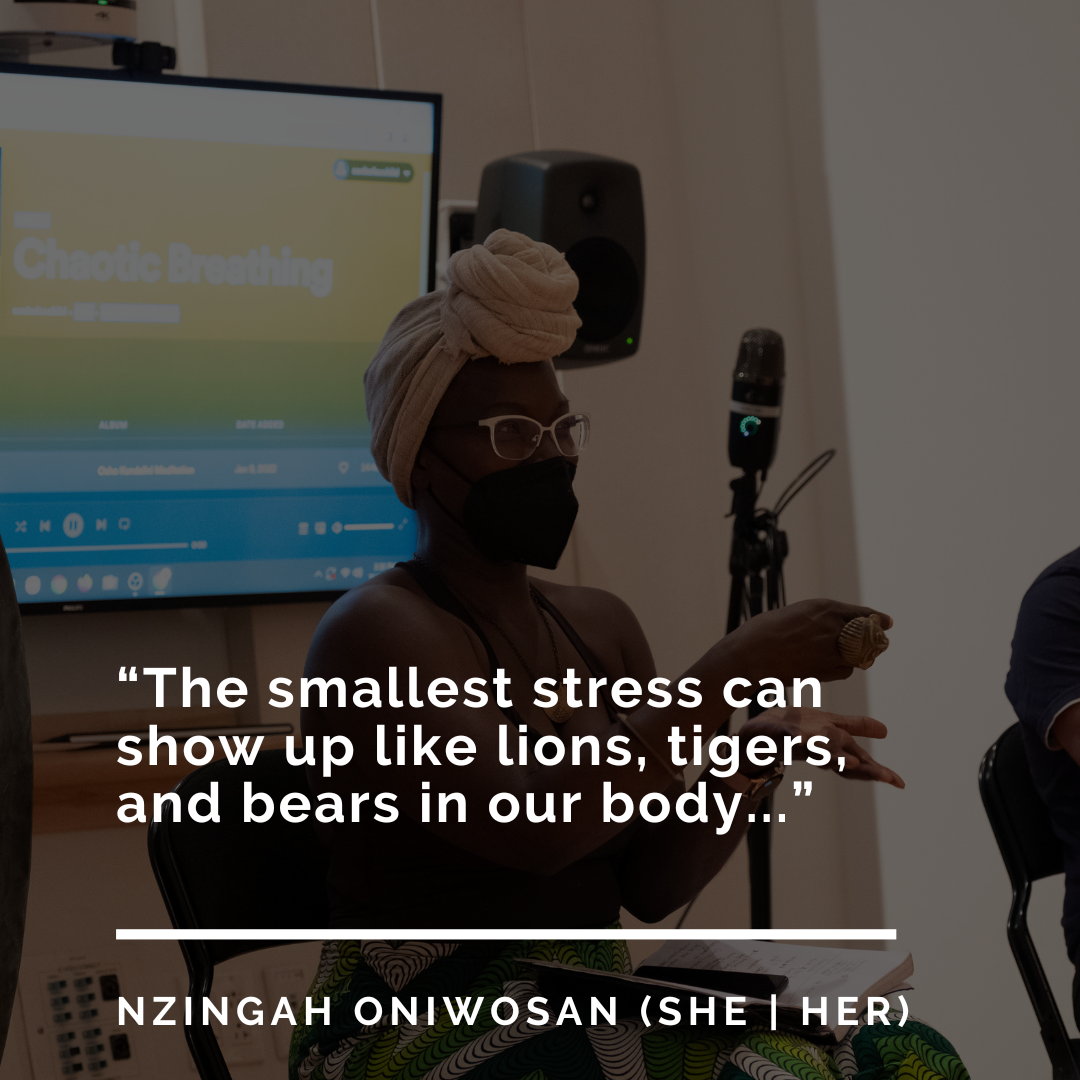Apply Your Own Oxygen Mask Before Assisting Others
Low sound waves of a gong pulsated through a still room of 10 brave and tranquil strangers at Maven Rising 2022. The solution session, “Apply Your Own Oxygen Mask Before Assisting Others,” taught attendees how to connect with their own needs and boundaries through sound therapy and meditation.
The metaphor of an oxygen mask resembles the practices one might use to put their needs first, before attempting to help others. In this case, attendees engaged in soft movement and deep breathing exercises to focus on their inner minds.
Wellness consultant Nzingah Oniwosan (She | Her) and meditation guide Daniel Higuera (He | Him), explained a difficult reality many face in examining these needs. Oniwosan noted how guilt often prevents us from tending to these needs, due to a societal pressure to constantly work and perform.
“Don’t forget to put your mask on first, because you’re no good to anyone when you can’t breathe,” Oniwosan said.
As the session commenced, she invited participants to share techniques to overcome this pattern, and mindful ways to regulate stress.
One attendee, Nadege Green (She | Her), social justice reporter and founder of Black Miami-Dade archival project, shared she journals to refocus her thoughts when feeling down.
“I’ll make a gratitude list, for example, reoriententing my brain… like this is a moment, and this moment isn’t forever,” Green said. “I [also] tell myself stories, and write letters for my future self.”
Others recommended to pray, stretch, listen to music, and practice soft belly breathing. This involves deep inhales through the nose, and exhales through the mouth, while one keeps the belly soft.
“When you feel yourself dysregulated, soft belly breathing is a way to send a signal to your brain like, ‘Hey, we’re not in danger,” Oniwosan said.
But how does one know when to start these practices?
Oniwosan recommended to take note of one’s fight, flight, or – the one many forget – freeze response. It may help to ask yourself personal reflection questions throughout the day.
“The smallest stress can show up like lions, tigers, and bears in our body,” Oniwosan said. “Moments of awareness of self… where you [ask], ‘How are you? What do I need right now? What do I need to change?’”
She emphasized how the Seven Domains of Wellness each impact both one’s physical and mental states. This includes spiritual, physical, emotional, financial, environmental, social wellness, and intellectual wellness.
Kishi Chad (He | Him), local advocate and events planner, noted how he “checks himself” when societal pressures start to slow him down, or control his actions.
“Let’s say I have to be refined… it’s irritating because I feel like I have to water myself down,” Chad said. “I look at those things as sort of an equalizer. Just because I have to tone it down or act appropriately doesn’t mean that I’m compromising my entire life.”
In order to balance them, one should voice their own boundaries and guidelines, Oniwosan suggested.
“It doesn’t do any good if you’re the only one that knows them,” she said. “You might put your mask on as somebody’s trying to rip your mask off and put it on themself.”
After members shared their own coping techniques, the group followed Oniwosan and Higuera in light movement as the slow beats echoed through the room. Participants were encouraged to dance in any movements most comfortable for them.
They also allowed attendees to opt-out at any time, but with one exception: don’t stop moving. As participants loosened up, one rocked in a fetal position; another stomped around; and some wiggled their fingers.
Though for some, the process did not come naturally. Some expressed physical pain through groans and sighs.
“Your body is activated. It’s like you’re holding yourself up,” Chad said.
To conclude the wellness session, deep bellows of a large gong filled the room while Higuera guided the circle in deep breathing – in through the nose, hold, sniff again, out through the mouth, he repeated.
“Those extremely low frequencies are especially useful for reducing anxiety,” he said. “The sound filling stuff is very useful in that it gives you something to focus on, but it’s still inside of you, because you can only hear inside of yourself.”
One participant even fell asleep during the exercise. It’s a sign your body needs rest.
You should listen to it.
“We live in a burnout culture that doesn’t honor or thrive on rest,” Oniwosan said. “We’re super functional for the people around us, but we’re dysfunctional for ourselves.”


